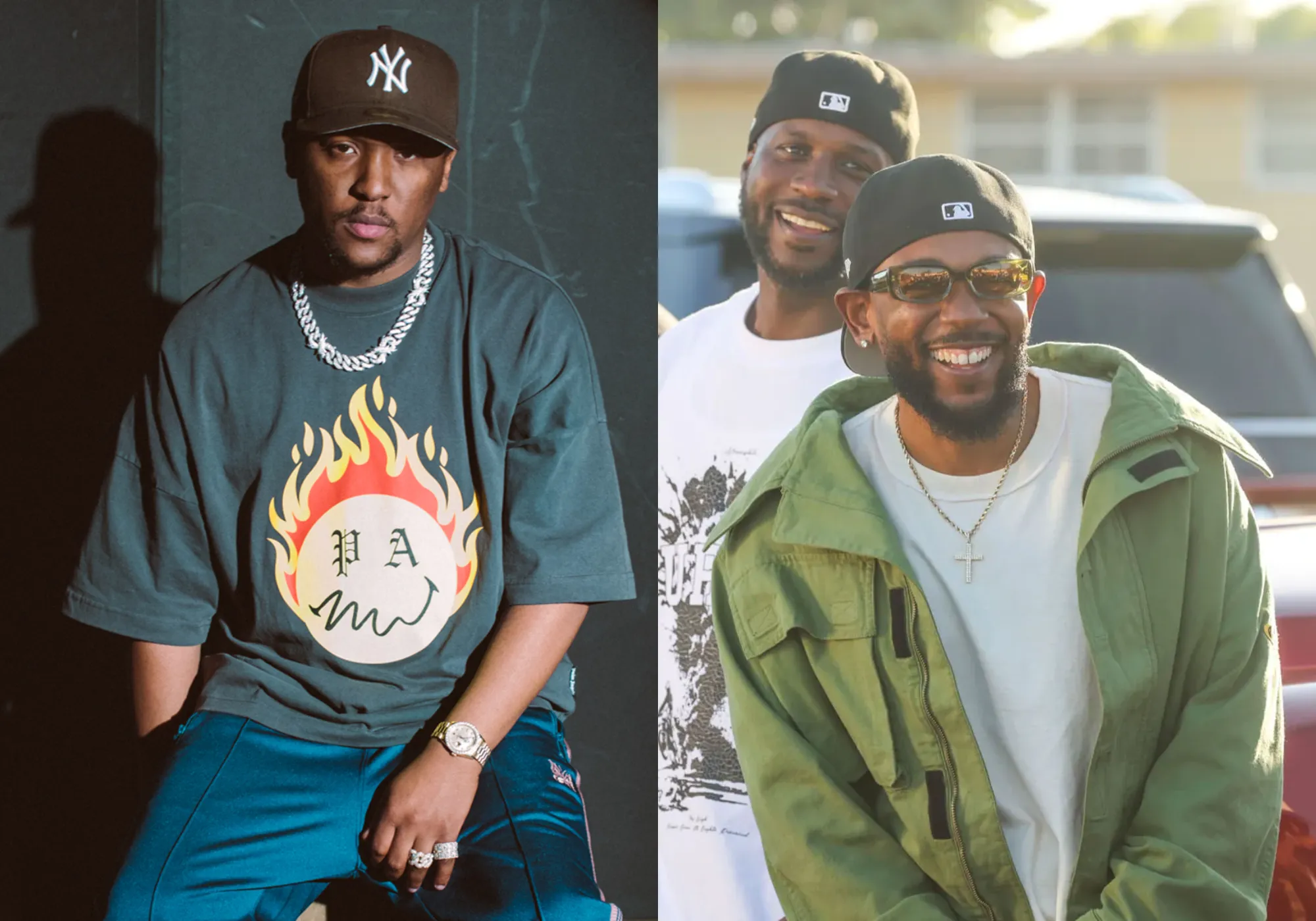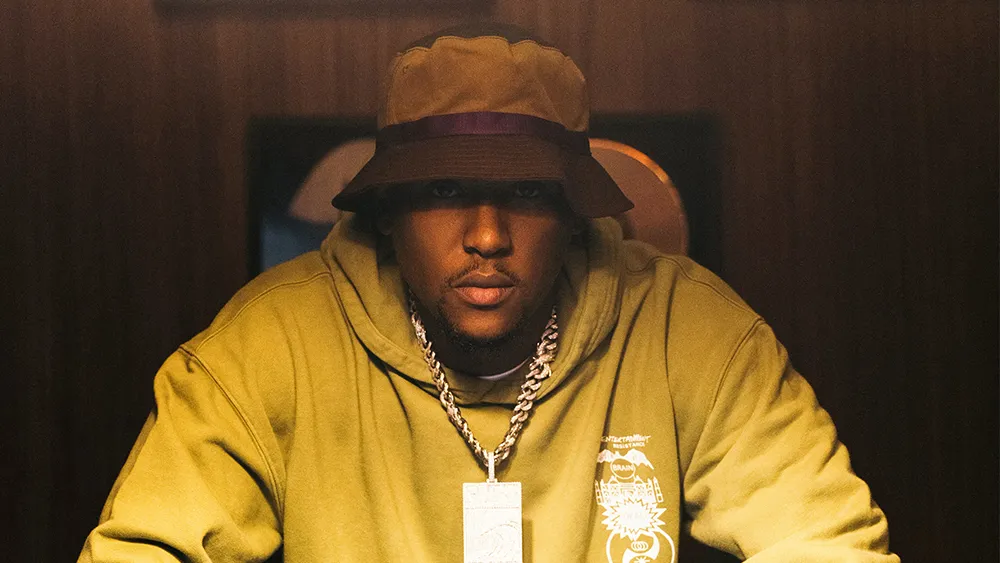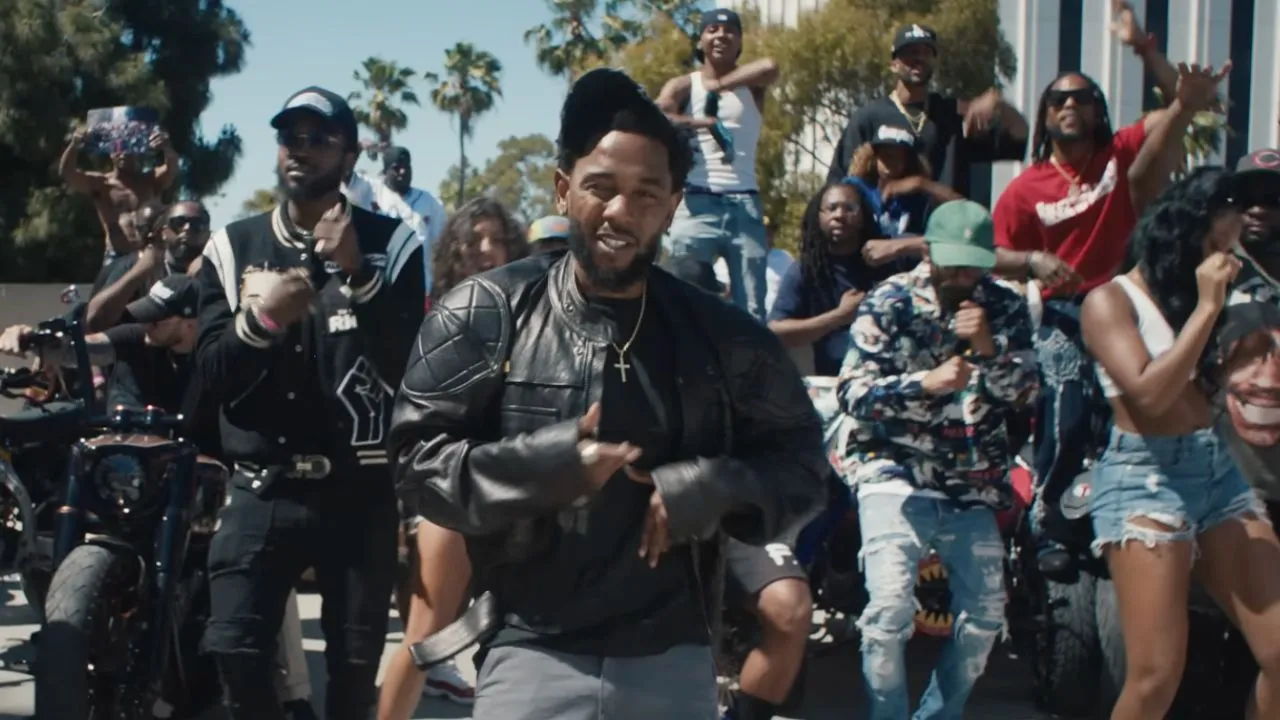

Hit-Boy Reveals Surprising Text From Kendrick Lamar The Day “Not Like Us” Dropped
A Moment That Defined Kendrick Lamar’s Confidence During His Battle With Drake
When Kendrick Lamar released his now-iconic track “Not Like Us,” the hip-hop world stopped in its tracks. Fans, artists, and producers alike felt the shockwaves of a record that would cement Kendrick’s position as one of the greatest lyricists of his generation. Among those who vividly remember the moment was Hit-Boy, a Grammy-winning producer who has worked with some of the biggest names in music.
Recently, Hit-Boy shared a remarkable story that revealed just how calm and collected Kendrick was on the day the track dropped. According to him, a simple text message from Kendrick Lamar showed that the entire battle with Drake was “light work” for the Compton rapper.
This reflection not only underscores Kendrick’s confidence but also highlights the deep respect and bond between the two creatives. Let’s dive into the full story, its context, and why it matters for hip-hop culture today.
Hit-Boy’s Story: The Unexpected Text From Kendrick Lamar
During an appearance on The Breakfast Club, Hit-Boy was asked whether there might be more material with Kendrick “tucked away.” While they have only collaborated officially on “Backseat Freestyle,” Hit-Boy has contributed production to tracks connected to Kendrick’s circle, including A$AP Rocky’s “1Train” and Jay Rock’s “Wow Freestyle.”
Instead of a direct answer, Hit-Boy shared an anecdote that captured Kendrick’s personality in a way fans rarely see.
“My son, he five years old now. But for his fourth birthday, he made a song,” Hit-Boy recalled. “He was in most of the sessions with me and Nas, just sitting in the back, didn’t realize he was taking this all in. I asked him if he wanted to make a song for his birthday. Put him on the mic, he literally freestyled with context. I was laughing, it was crazy.”
Hit-Boy explained that he put out his son’s song with a video. Coincidentally, it was the same day that Kendrick Lamar dropped “Not Like Us.”
“And this is how I knew Kendrick, like, this was light work for him,” Hit-Boy continued. “He texted me about my son’s video. Like, ‘Go ahead, nephew!’ You know what I mean? In the middle of all that. He crazy, he really crazy. He cool, though.”
The fact that Kendrick, in the middle of one of the most talked-about battles in rap history, took the time to celebrate Hit-Boy’s son says a lot about his composure, mindset, and character.
The Meaning Behind Kendrick’s Calm Demeanor
For many, the beef between Kendrick Lamar and Drake was one of the most significant moments in recent hip-hop history. “Not Like Us” didn’t just land—it shook the industry, sparking debates, think-pieces, and millions of fan reactions worldwide.
Yet, while the public consumed every bar as if it were part of a heavyweight championship, Kendrick appeared almost detached from the chaos. His text message to Hit-Boy about something as wholesome as a child’s birthday song revealed that the so-called “battle” barely phased him.
This wasn’t arrogance. It was confidence rooted in preparation and artistry. Kendrick had already done the work, crafted his response, and knew he was operating on a level where he didn’t need to stress over Drake’s moves.
A Look Back: Kendrick and Hit-Boy’s Creative Relationship
Even though they have not released an extensive catalog of collaborations, Kendrick Lamar and Hit-Boy’s careers have crossed paths multiple times.
-
Backseat Freestyle (2012): One of Kendrick’s most recognizable tracks from good kid, m.A.A.d city was produced by Hit-Boy, helping define the rapper’s early mainstream sound.
-
1Train (2013): Hit-Boy produced this legendary posse cut for A$AP Rocky, which featured Kendrick alongside Joey Bada$$, Big K.R.I.T., Yelawolf, and more.
-
Wow Freestyle (2018): Another indirect connection came when Hit-Boy worked on Jay Rock’s standout track featuring Kendrick Lamar.
Beyond the credits, Hit-Boy emphasized that he’s always “chopping it with bro,” hinting that there’s mutual respect and constant creative dialogue.
Kendrick Lamar vs. Drake: The Cultural Earthquake
The Kendrick Lamar and Drake rivalry isn’t just about two artists trading verses—it became a cultural moment. “Not Like Us” was the centerpiece of the feud, hailed as one of the most impactful diss tracks in modern rap history.
It combined sharp lyricism, cultural relevance, and production that resonated with listeners instantly. Fans played it on repeat, critics dissected every line, and social media lit up with memes and debates.
Against this backdrop, Kendrick’s ability to stay focused on something as personal and grounded as texting about Hit-Boy’s son showed that, to him, the feud was never life-or-death. It was art, competition, and performance.
The Power of “Not Like Us”
“Not Like Us” wasn’t just another diss track. It represented several key things:
-
A Statement of Dominance: Kendrick made it clear that he could dismantle Drake’s credibility with precision.
-
West Coast Energy: The track’s beat and flow carried the undeniable flavor of West Coast hip-hop, linking Kendrick to a proud lineage of Compton legends.
-
Replay Value: Unlike many diss tracks that fade after the controversy ends, “Not Like Us” had mainstream appeal and cultural stickiness.
This is why Hit-Boy called it “larger than life” and why fans still talk about it long after its release.
Hit-Boy’s Role in Hip-Hop’s Modern Era
While much of the spotlight was on Kendrick, Hit-Boy’s presence in the story reminds us of his influence on hip-hop. He’s been instrumental in shaping sounds for Kanye West, Jay-Z, Nas, Travis Scott, and Beyoncé. His collaborative project with Nas, King’s Disease, even won a Grammy, proving his ability to adapt across eras.
Hit-Boy’s anecdote about his son also reflects something deeper: the generational legacy of hip-hop. Just as Kendrick and Hit-Boy are pushing boundaries, the next generation—like his young son—is already absorbing and expressing the culture in their own way.
Lawsuits and Fallout: The Ongoing Impact
It’s worth noting that while Hit-Boy described Kendrick’s demeanor as calm, the aftermath of the battle extended beyond music. Reports of lawsuits tied to defamation claims and industry fallout show that battles at this level don’t just stay in the booth.
The Drake vs. Kendrick Lamar saga sparked discussions about freedom of expression, responsibility in lyrics, and how legal systems might intersect with music. It highlighted the reality that hip-hop, while deeply artistic, also operates in a world of contracts, brands, and public accountability.
Why This Story Resonates
Hit-Boy’s revelation about Kendrick Lamar’s text message resonates because it humanizes an artist often seen as untouchable. It reminds fans that even in the middle of global headlines, Kendrick remained grounded, playful, and supportive of his peers’ families.
It also shows that true greatness isn’t just about technical skill—it’s about perspective. For Kendrick, the “battle” was simply a stage for expression, not a source of anxiety.
Conclusion: Kendrick Lamar’s Light Work
The story of Kendrick Lamar’s text to Hit-Boy is more than just a funny anecdote. It encapsulates the rapper’s mindset during one of the most intense moments of his career. While the world obsessed over every lyric of “Not Like Us,” Kendrick was sending encouragement to a producer’s young son, proving just how unfazed he was by the noise.
For Hit-Boy, that moment confirmed what many fans already suspected: Kendrick Lamar saw the Drake battle as light work.
And in a way, that’s what makes him legendary—not just his bars, but his ability to stay grounded when the world is watching.




















